Initially I had nothing planned for this weekend, ‘cuz it was my University’s bidding period for next semester’s classes. I was also extremely tight on money (even that is an understatement), as it was the end of the month and I was waiting to receive my internship salary. Plus, on Sunday I would turn 21. So naturally I had to put my modules on the line, and later even the chance of adulthood, and book a solo trip to Huangshan two days in advance. After paying for the train and accommodation, accounting for the Huangshan transportation and entrance fees, my balance slid into the low two digits, and mind you this was in RMB.
Getting to Huangshan Mountain was logistically my most challenging trip in China. To summarise, if you are coming in from other cities, you must first get to Huangshan City (黄山市). Once in however, locals refer to it as Tunxi (屯溪). If you blank out, Huangshan Shi and Tunxi are synonymous with each other. Afterwards, you have to get from Tunxi to Tangkou (汤口). Tangkou is the main point of access to get to Huangshan Mountain. Once you reach Tangkou, only the official bus will take visitors up to the base of Huangshan Mountain, where you buy your entrance ticket and start your climb/cable-car up. I recommend allocating two hours for the transportation from Tunxi to the mountain base, one way.
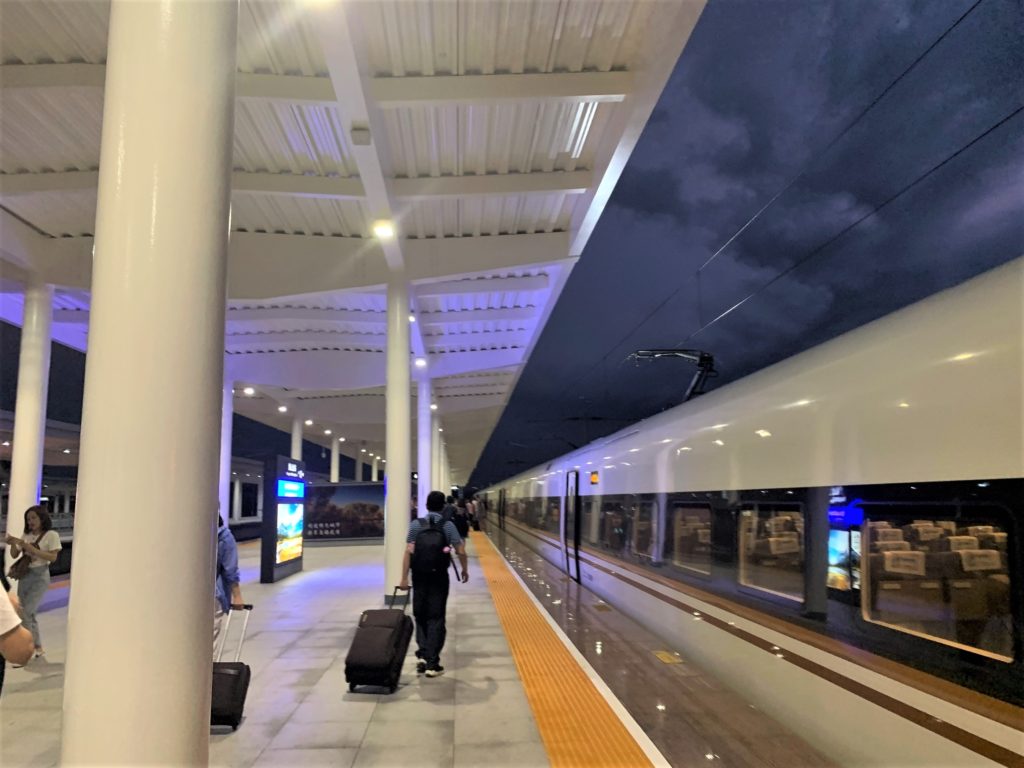
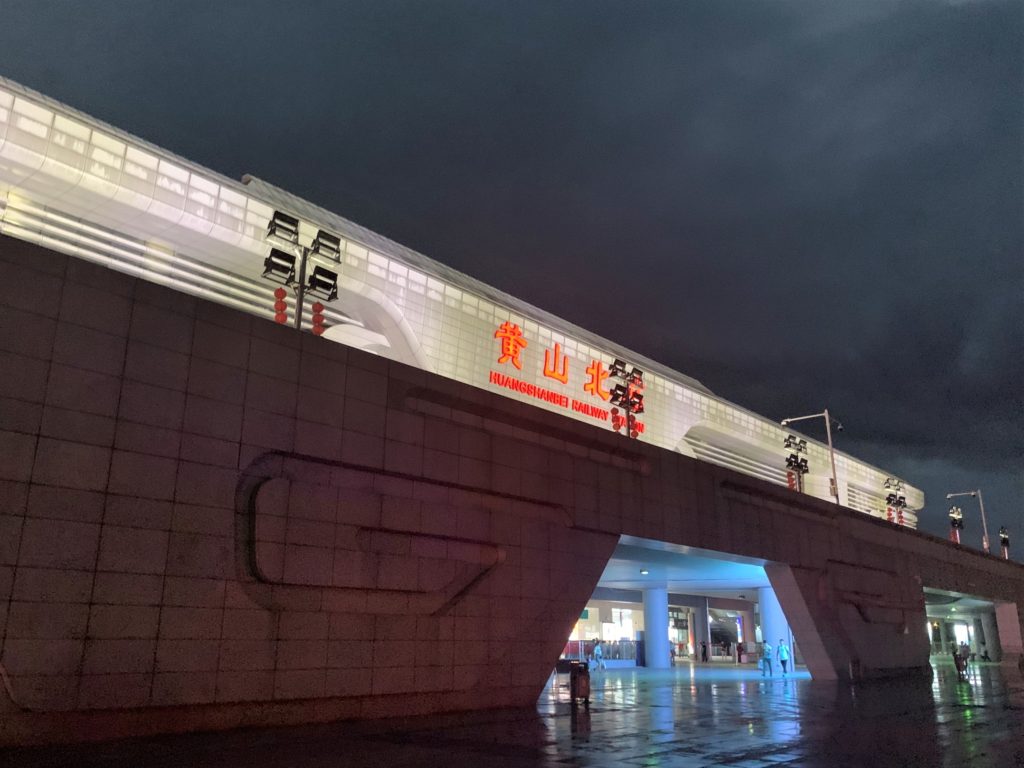
I took the high-speed railway from Shanghai Hongqiao (上海虹桥) station to Huangshan North (黄山北) station. Huangshan North serves the high-speed trains, while Huangshan serves the slower trains. Because I booked late, I was left with the 16:22 train on Saturday. The journey took about 3 hours, which meant I reached after dark. Unfortunately, Huangshan North station is not near the city centre, which is where Huangshan visitors usually stay.
Most of the accommodation are around Tunxi Old Street (屯溪老街), confusingly bearing the same name as the city. I stayed at YHA International Youth Hostel, which was right in the middle of Tunxi Old street. There are public buses that take you from Huangshan North to Tunxi Old street, but the bus station was wrongly located on Baidu Maps, so just follow the crowd. Or be like me; ask the security guards and wait five seconds for them to reluctantly answer you before awkwardly walking away.
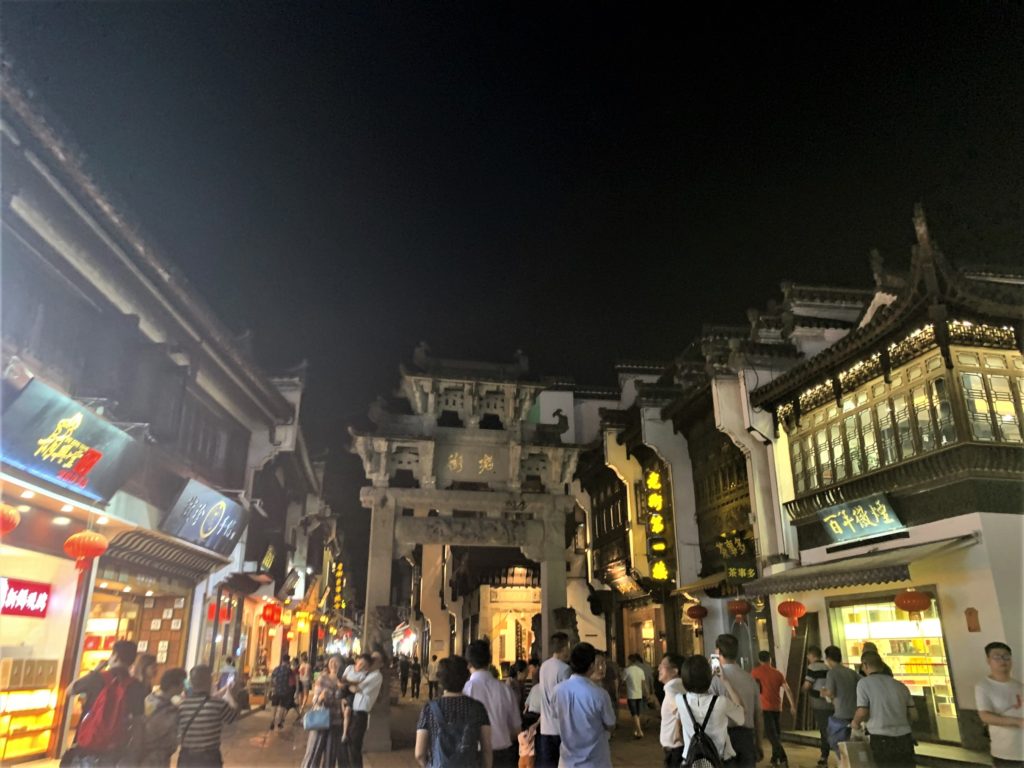
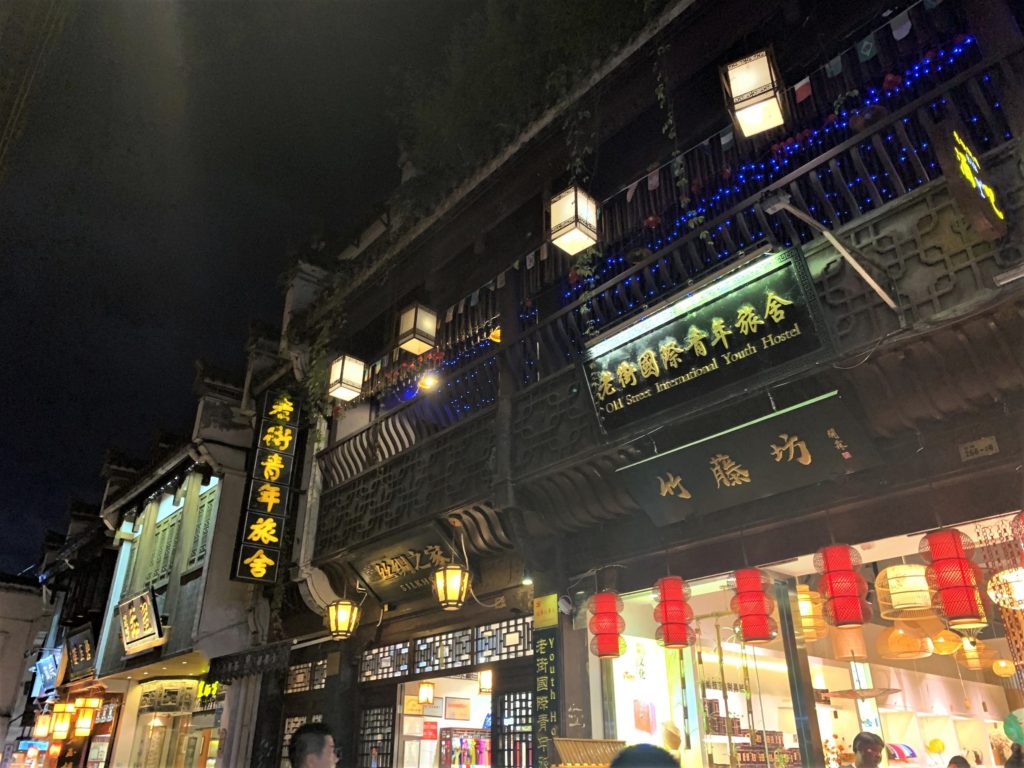
YHA hostels should really coordinate their bath towels policy. Anyway, just a heads up that you have to buy your towels here if you did not bring them. After checking in, I went back out to explore Old Street, which was still quite crowded (or lively) at 10pm. The entire street is a tourist trap, but for the sake of tourism, there are souvenirs, Chinese calligraphy stamp personalization services, and lots of street food. Huangshan tea is famous in China for its aroma. For the more adventurous, try the hairy toufu (毛豆腐). It got its name from the mould that grows out during fermentation, fun stuff.
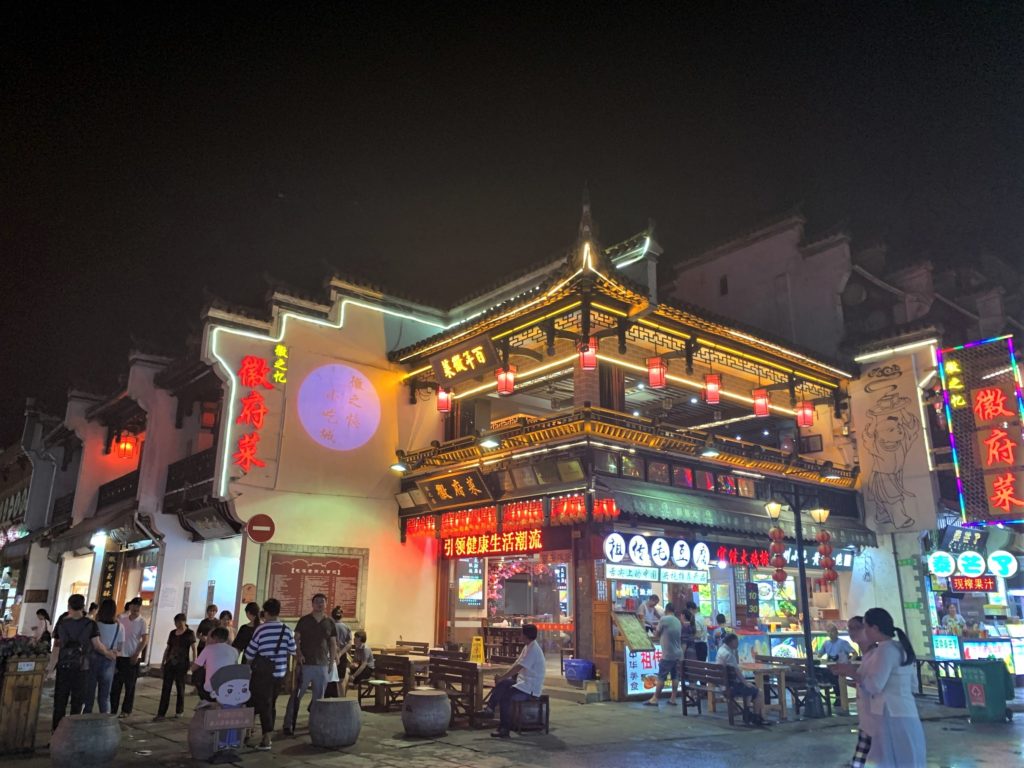
The hostel counter can help you book a bus that goes to Tangkou, with pickup at the lobby. It costs RMB25 and is scheduled every morning at 6am. Pro tip: pack enough water, a raincoat, and an umbrella because it rains a lot up there. Water can cost up to 10 times the normal price at the top of the mountain. Raincoats too. Basically, you will be ripped off buying anything sold up there. I headed downstairs at 5.30am. It is better to be there early because if the person picking you up does not see anyone waiting, they will just leave. I was sleep deprived and eating a granola bar when a middle-aged lady with the longest black hair I have ever seen tied into a low ponytail barged in.
Speaking in Chinese, she darted around the lobby shouting into empty space, asking if I was the only passenger from this hostel. Surely she wasn’t raising her voice on purpose since it was also only 5.45am, but you now, voices are louder here. After the half-asleep staff at the counter acknowledged her, the two of us walked out to the now-empty Old Street as I followed her lead to the bus. She was extremely gregarious; along the way she kept asking me questions like where I was from, why I could speak Chinese, why I was here alone, etc.
For some reason she kept circling back to the fact that I was female and alone, and someone needed to take care of me throughout my trip. The independent spirit in me raged. Then I realised that she was actually trying to sell me her own tour package, inclusive of a guide who would lead me up and down the mountain, and transportation to the railway station in the evening to catch my train. I might have been half interested in her pitch if she had not based it entirely on my need for protection. Anyway, the lid on the matter was firmly sealed when she revealed that it would cost RMB500. If only she knew how much money I had left in my bank account. I told her no thank you. She said she understood.
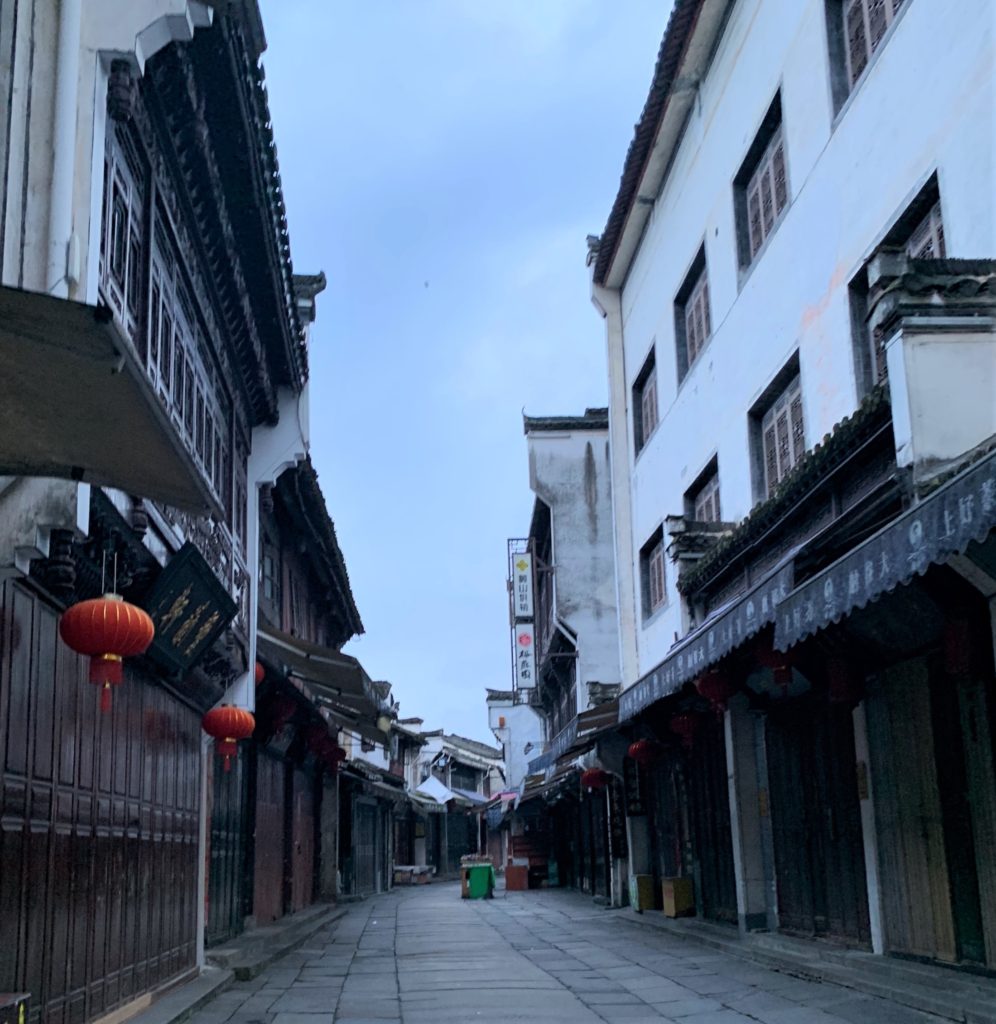
We stopped at another hostel on the way to pick up more passengers, who were a group of five British tourists. They were eating pizza and hamburgers for breakfast. The lady muttered that foreigners only knew how to eat junk, which was why they were so big. I’m lucky I have a resting poker face. As she could not speak English, she asked me to be her translator. Gradually, her questions for them morphed into the ones that she asked me, except that this time they were foreigners who could not speak Chinese, so it was better for them to have a guide to help them throughout the climb. Meanwhile we reached the bus, and they were still discussing their decision to buy her package, so I just sat and stared blankly out of the window.
The bus moved for about 10 minutes before coming to an abrupt stop and opened its doors, which was strange since all the seats were filled. The lady stood up and told me to get down from the bus. I froze in my seat, before finally blurting out “why”. She said the bus was only for those going on her tour package. Before I could react, she took my arm, pushed me out and asked me to follow another middle-aged lady waiting outside of the door. I was horrified. Who was she? Where was I? I saw her discreetly push my bus money into the new lady’s palms, while the latter thanked her.
It all happened in a flash. In the next moment, the bus drove on and shrouded us in exhaust. The new lady told me to follow her. I asked her to where; she said to her bus. I asked if the bus was going to Tangkou; she did not reply or look at me. I asked again; instead, she asked why I was going to Huangshan Mountain. I was desperately looking around for some sort of a landmark in case this was the last thing I saw, then an actual bus appeared by the side of a road. She told me to go in and wait, while she finds “the others”.
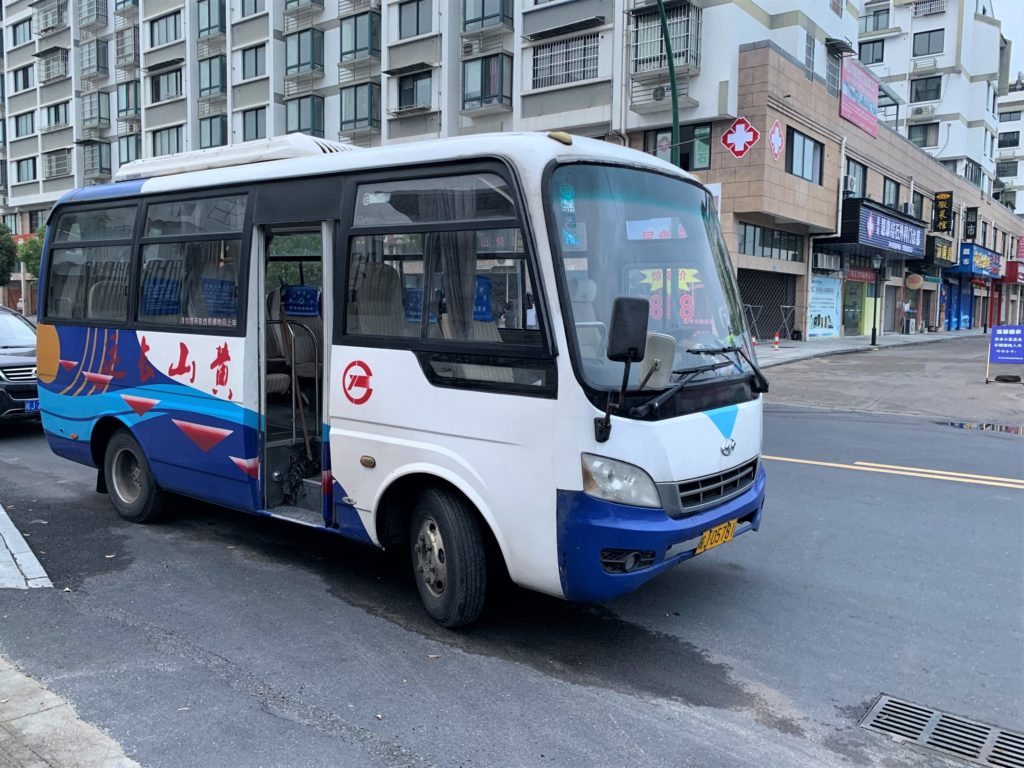
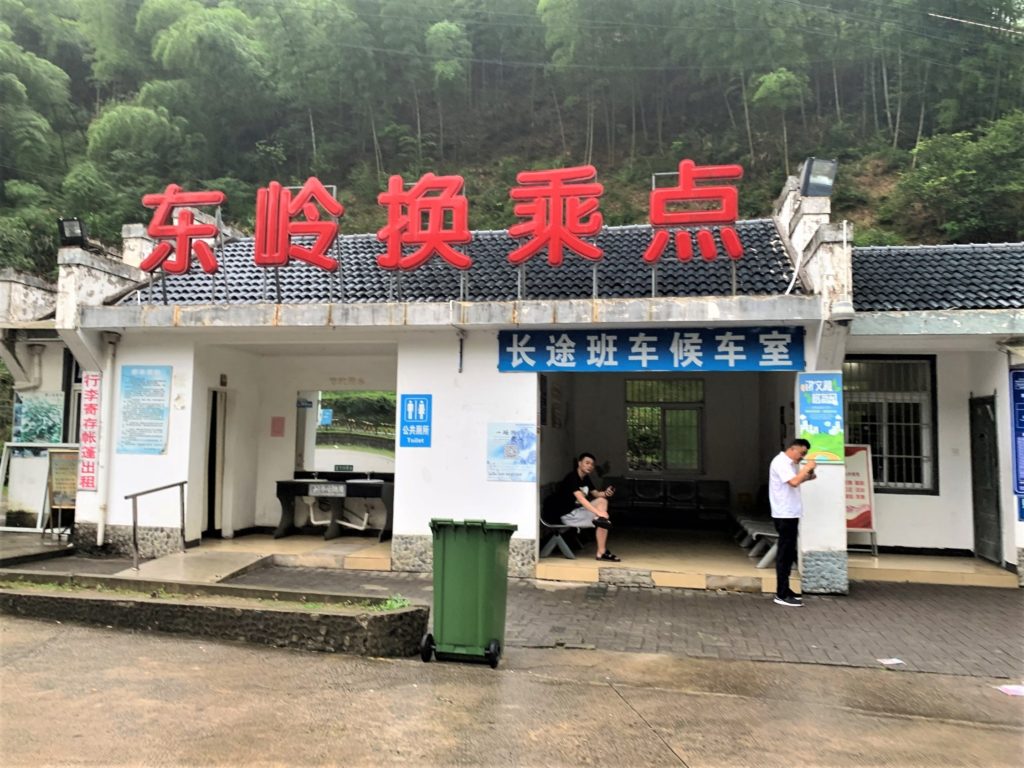
I sat down inside and explored my options. Di-di (Chinese version of Uber) was out since I had no money; public buses were not running as it was only 6.10am; and according to my GPS I was too far out to walk back to the city centre. So I decided to throw logic out of the window and wait in the bus. There was not a single soul in any direction I looked. I wondered if this was how it would end for me, kidnapped in Huangshan on my 21st. I also wondered how the five British tourists were doing in the other bus. They probably didn’t even know that the lady had assumed they would purchase her tour package even though they were undecided.
A full 20 minutes passed before a couple boarded the bus. Oh good so people still exist here. That was an unbelievably long amount of time to be alone with one’s thoughts. Eventually the bus filled up and started off. This time, I closely followed its path on GPS to make sure we were headed to the right place. It took an hour to each Tangkou. When the bus stopped, I felt a sense of dread again.
The place looked nothing like the main transfer centre that I had seen on the internet; it was far too small and empty. There weren’t other options, so I walked towards it in the slight drizzle. More middle-aged people emerged from their stores and tried selling me raincoats, which I had already packed. When I rejected them, they accused me of not trusting their generosity and told me that I would regret when sellers on top of the mountain scam me of my money. Classic sales tactic. Insult your customers so they would be more likely to buy from you.
At the transfer centre, I asked for a ticket to Yungu Temple (云谷寺), which was RMB19. There are four entrances to start your climb up Huangshan Mountain, but I opted for this as it was recommended for fewer crowds and a shorter walking time (estimated two hours one way). For environmental reasons, only the large official Huangshan buses are authorised to transport people from Tangkou to Huangshan Mountain and vice versa. This meant that all tour groups had to use these buses too. When I boarded it, I was met with 40 people donning the same bright red tour cap staring back at me. Right, I’m the weird one. On the bright side, I had a free introduction of Huangshan Mountain from their tour guide.
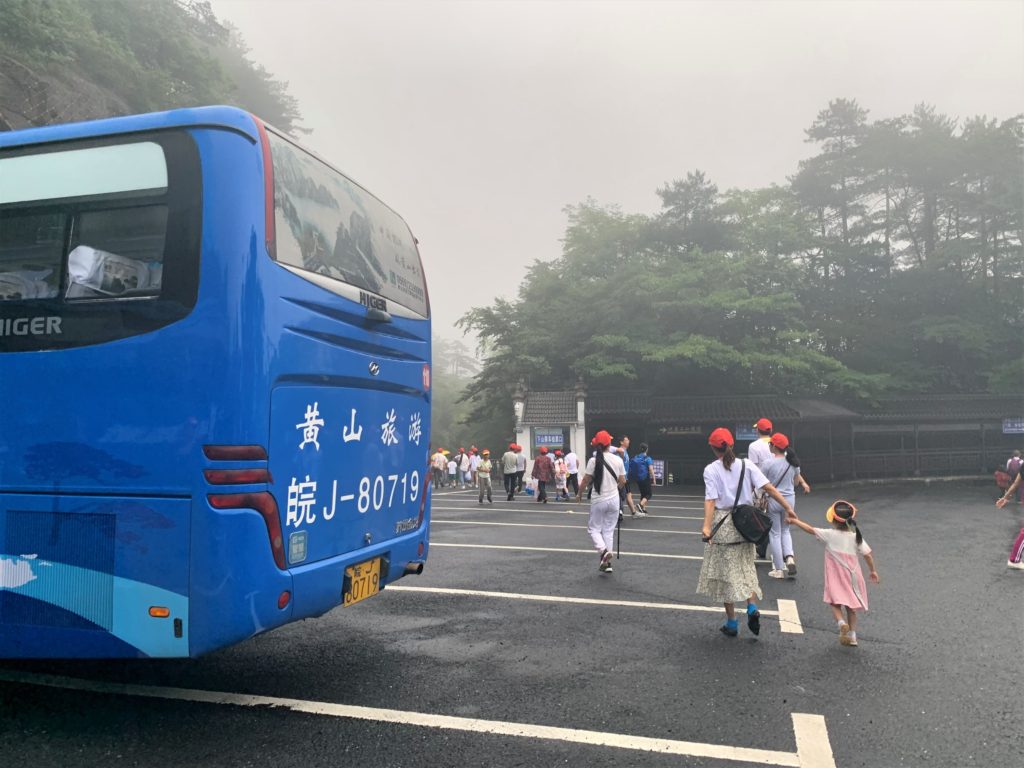
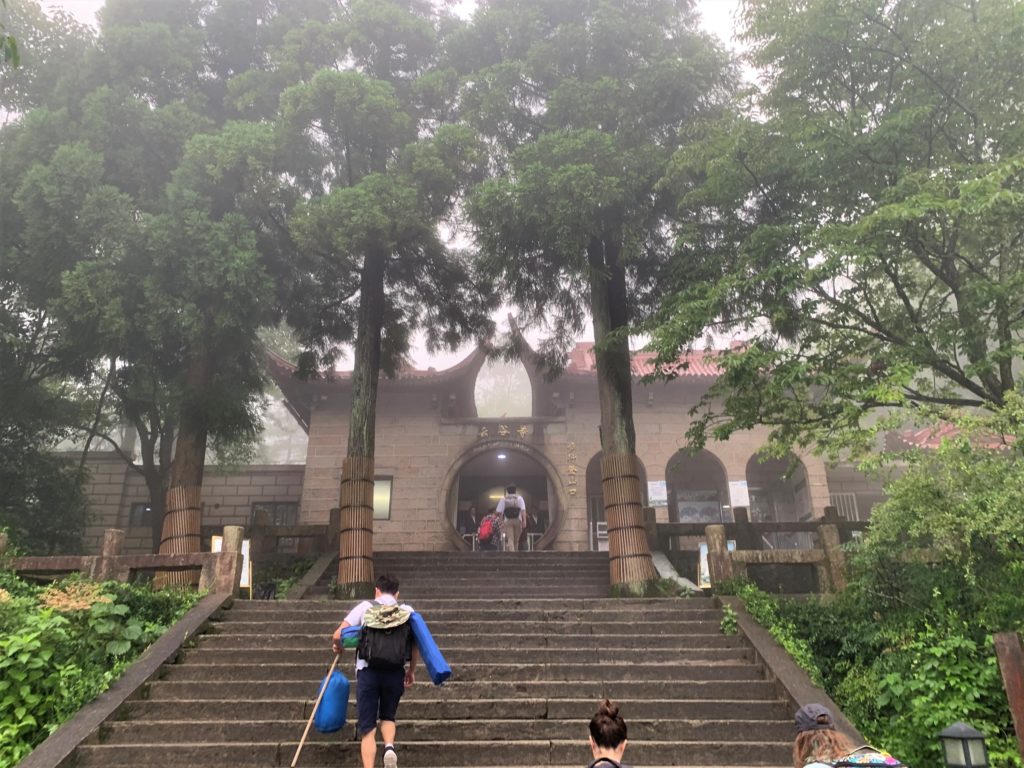
We reached 20 minutes later. A student entrance ticket to Huangshan Mountain is RMB95, and double that for the adult price; cable car not included. This was my most expensive tourist attraction in China. There was a snaking line for the cable car, and almost nobody at the entrance for walking up. FINALLY I started my climb. It was very misty and still drizzling sporadically. The path started off gently in the bamboo forest, then BAM, it rose precipitously to a 70 degrees incline. I think I know why this route is less crowded now.
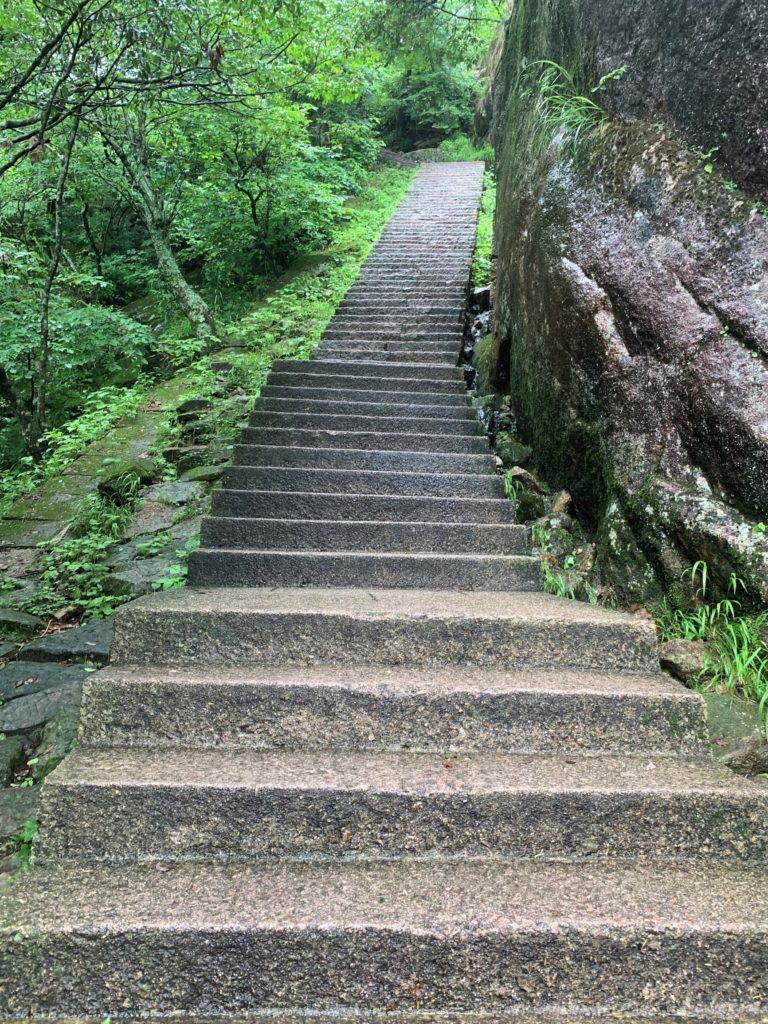
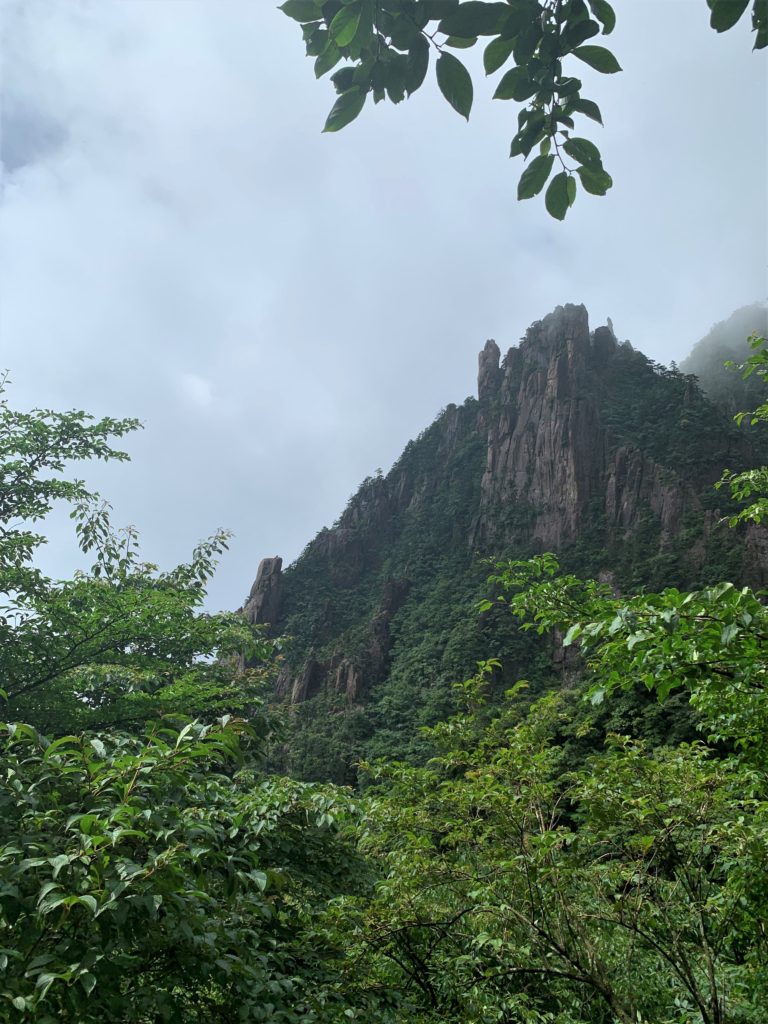
For those of you who have heard of Huangshan, the first thing you learn about it is probably its strangely shaped rocks, some of which even resemble animals. That is how it became China’s most famous mountain in the first place. Why else would millions of tourists flock here every year, most of whom are domestic travellers.
I hate to be that person to rain on everyone’s parade, but try as I might, I could not see any sort of resemblance of the rocks to their iconic descriptions. And I swear I looked at the right place; the pictures of the rocks that I took are the same as those printed on the tourist signage. See the picture on the right above? That piece of rock jutting out left of the highest point is supposed to look like a dog. I am choosing to ignore “heavenly” and “watching the Moon” because adjectives and descriptors only add on flavour to the existing subject, which in this case is “dog”, which in my eyes does not exist.
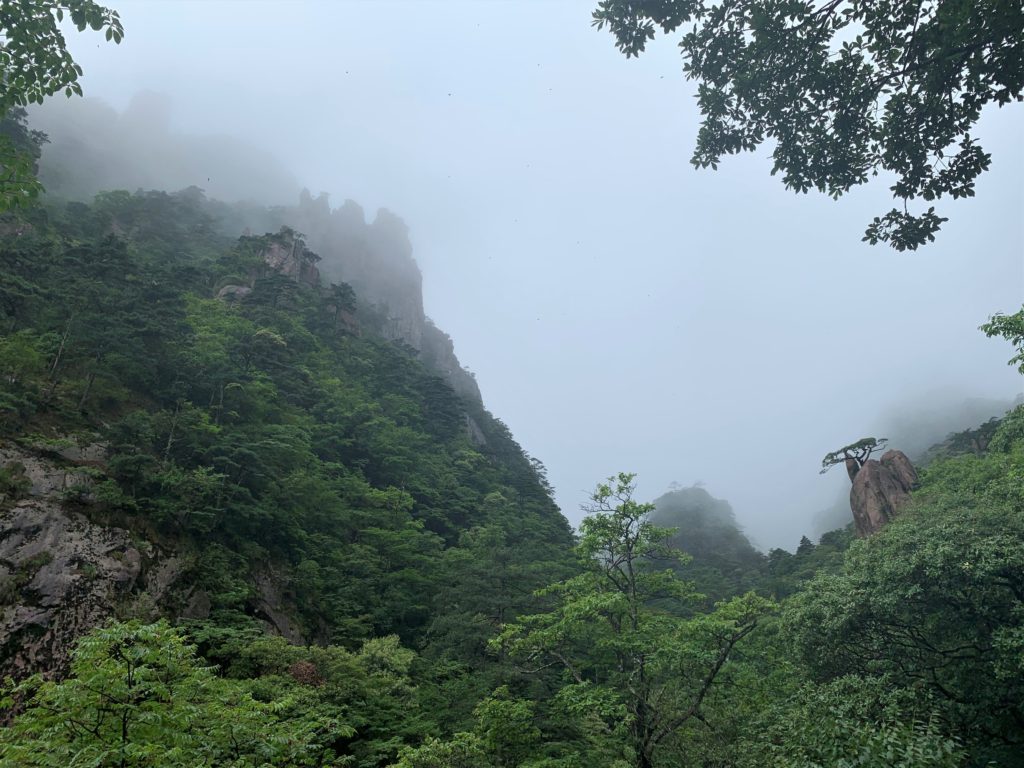
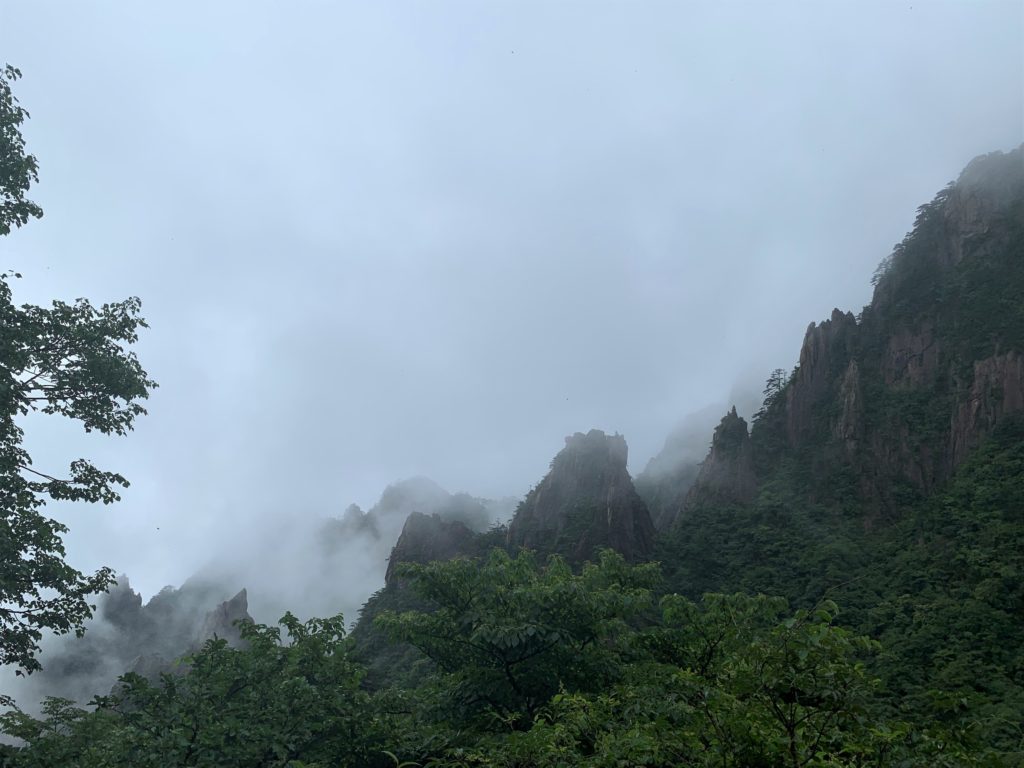
Again with the picture above on the left; the tree growing out from the bare piece of rock on the right side is supposed to look like a welcoming person with arms outreached. I will say though, I can see how Huangshan inspired Chinese paintings of nature through its mysterious mist. Apart from that, I either have no imagination, or was having a bad day (probably both).
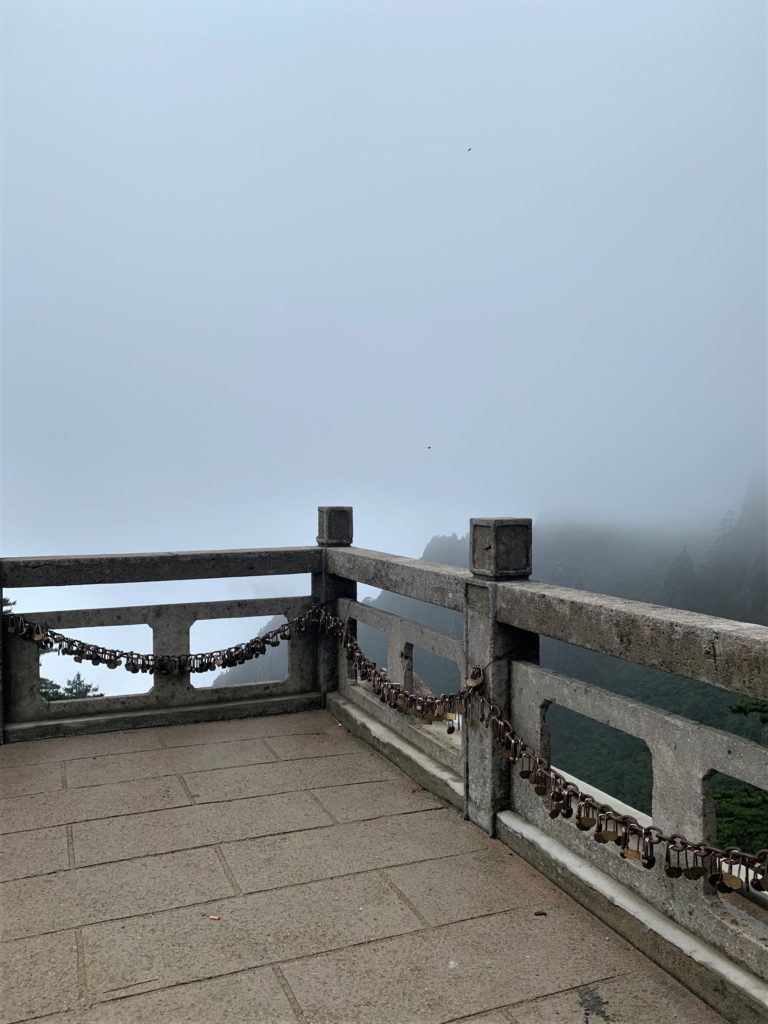
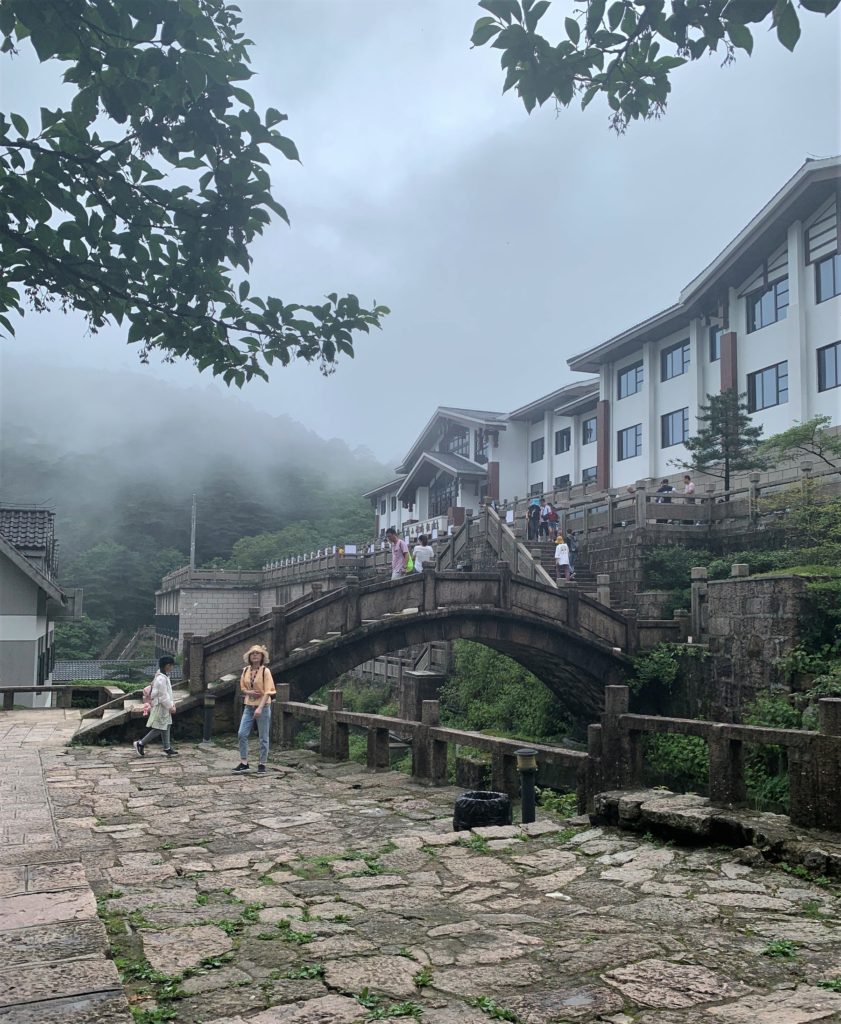
If your legs get tired, you could pay people to carry you up. But it would look like you got seriously wounded because you would be lying on something that looked like a stretcher, while 2 middle-aged men lift you from the front and back. At the top, there are a few high-end hotels/resorts that cater for wealthy people in tour groups. Aka those pricks who take the cable-car up and proclaim that they have climbed the mountain. Kidding. If you have the time and want to overnight at the top but have a tight budget, you could bring your own tent and pitch it.
I don’t exactly know how I reached the top, probably through sheer will. This route is definitely not suitable for beginners. I am in no way fit myself, and I paid the price for that both physically and emotionally. I thought that there was a “peak” on top of the mountain where people take pictures of for a sense of accomplishment, but more importantly for the gram. There isn’t one, however. At the top, there are several more paths you can take to see more famous rocks (yippie ki yay).
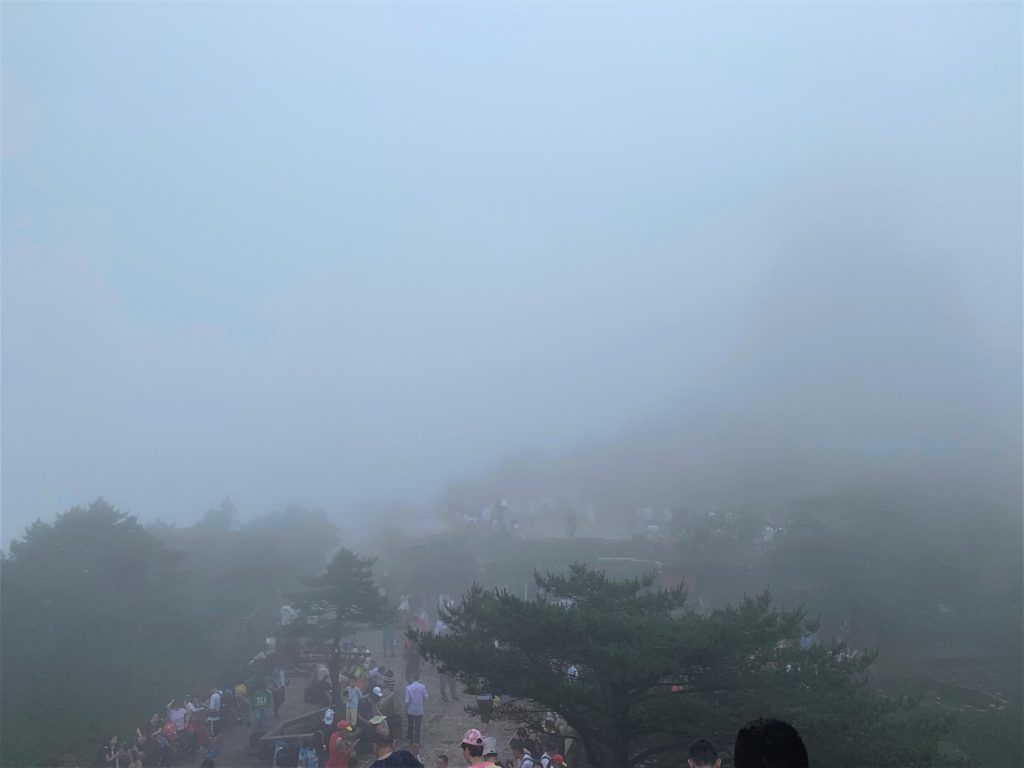
On my way to Monkey Overlooking the Sea, the drizzle suddenly turned into a torrential downpour. By the time I got out my raincoat, I was already soaked. I decided I had seen enough, plus the rain meant the clouds thickened and you couldn’t see anything even if you tried. Somewhere along my way down, I realised I ripped a gaping hole down one side of my raincoat and was drenched inside. I got out my umbrella for extra shelter, but the only thing that it kept dry was my head. Rainwater turned into waterfalls cascading down the steep steps. I was wading through a river and my shoes were completely submerged under it. Could this day get any worse?
An hour later, the rain stopped as quickly as it started and the sun was beaming overhead. I continued walking down long enough for my clothes to start drying, but my toes remained wrinkled in my wet socks. Cringe. Anyway, never before have I felt so happy to see the exit. At this point, my thighs hurt so much that it was painful to even sit. I booked my ride back to Tangkou, and this time the bus dropped us off at the main transfer centre. From there, I booked the small bus to Tunxi. The seats were so cramped that the bag on my lap was squished firmly against my chest. The bus stopped at Huangshan Railway station, which unfortunately was not my railway station (screams).
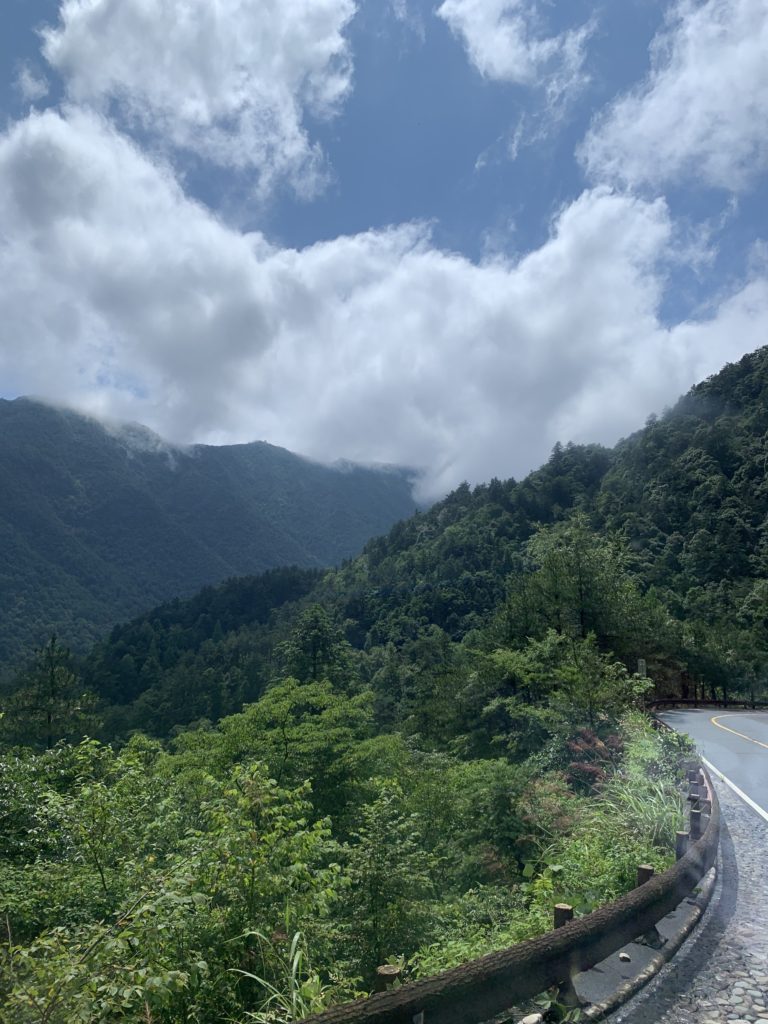
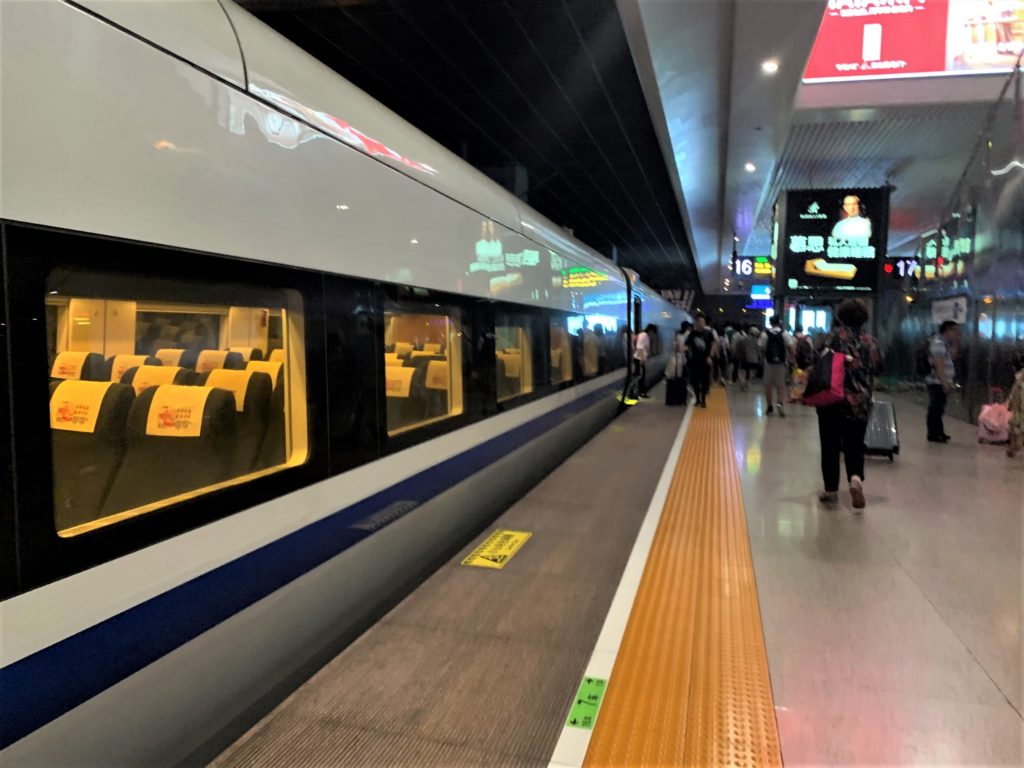
I took bus 21 to Huangshan North. Forgive me if I did not give up my seat to anyone in need. I may look young but my legs just died and were still burning in hell. I reached more than an hour before my train’s departure at 19:13, so I went to eat noodles and reflect on my life choices.
This was not a direct train back to Shanghai because I booked my seats so late. The direct trains for the timings I needed were sold out. Hence, I had to transfer trains at Hangzhou East, and had only 20 minutes to do so, which in retrospect was a stupid idea because train stations in China are notoriously crowded and the security queues are never in your favour.
Once I arrived in Hangzhou, I sped walked (I was physically incapable of running) towards the Transfer passage, where there was a swarm of people squeezing their way through a single gate to the main waiting hall. There was only one officer on duty checking if you had the correct connecting train ticket before letting you in. Somehow, I pushed my way through (desperate times), and reached my gate ahead of time. Thankfully Hangzhou East is newly built, and I did not have to leave the station just to get back in again to transfer trains.
Finally, I was on my way back to Shanghai Hongqiao. It was 10.30pm when I reached, in time to catch a public bus back home. I got home around midnight, beaten and battered. If I could wake up the next morning for work, you can do anything.
Epilogue
It wouldn’t be fair if I did not include the physical aftermath of the climb: sudden over-exertion of leg muscles (or any muscles really) is no flipping joke. Walking on a flat plane was the most bearable, but nonetheless very unpleasant. Any form of ascent or descent (in the form of slopes or stairs) was excruciatingly painful. I had to stand sideways and crab my way up or down one leg at a time. I also adhered strictly to Newton’s first law of motion: when at rest I stayed at rest unless absolutely necessary. Standing up was worse than sitting down, because when I sat I could release myself and plonk into the chair, while getting up required the effort of all four limbs.
Furthermore, every morning I had to cycle 15 minutes to work, and back again in the evening. The road was not entirely flat too, there were a few bridges I had to overcome. Why didn’t I take the bus, you may ask. The buses come far and few between, and I still had to walk a distance to the bus stop. The metro made less sense, on a good day it took me 20 minutes to walk there. Di-di? I may be hurting but I was still broke. It even hurt when I was lying down. When I woke up, pain was the first thing I felt in the morning. Getting out of bed was literally painful. This went on for a whole week. Welcome to adulthood, did I really expect anything less?
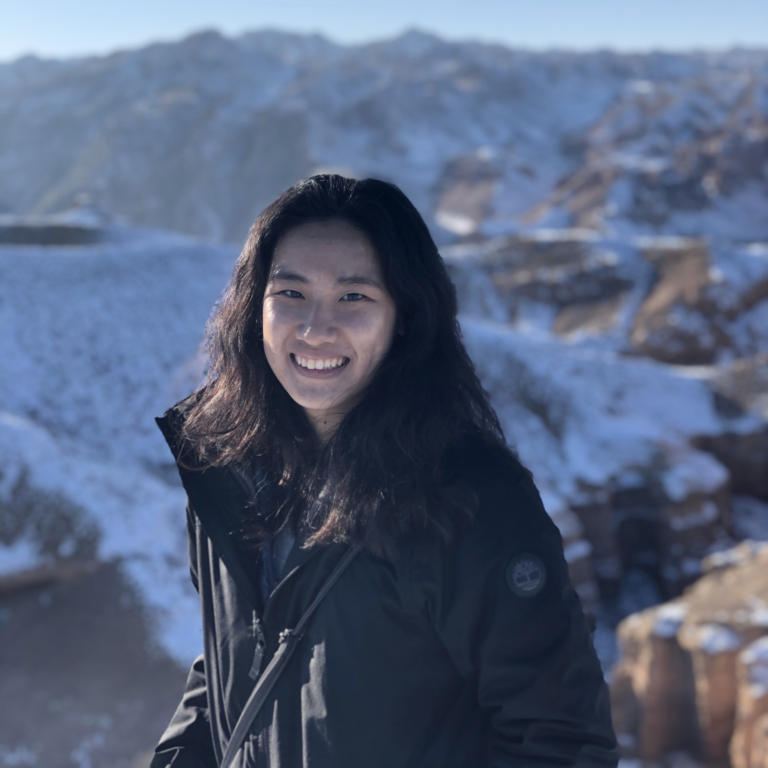
Hi! I am Joey, a University student from Singapore, attempting to show my appreciation for the world’s most powerful passport by literally milking its visa-free benefits one country at a time. I describe my travel budget as shoestring and travel style as audacious.

Slide into my comments section...